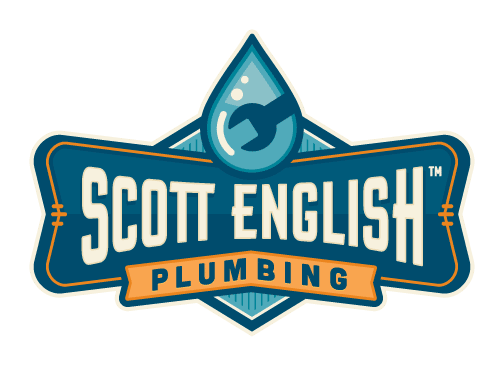DIY Plumbing | Water Heater Energy Efficiency
According to the U.S. Department of Energy, water heating accounts for about 16% of total annual energy expenditures. That’s a great deal of energy being spent on one home appliance. We would all love to find out ways that we can cut down our energy costs for large energy consuming units like these. Thankfully your friends at Scott English Plumbing Inc. have the inside scoop on two simple tricks that you can implement today and save tomorrow.
The two easiest ways to reduce your energy use when it comes to hot water are to reduce heat loss in your water heater and use less hot water. This may sound simple we can help you by writing down the steps needed in order to make these changes effective.
Using Less Hot Water
- Start by replacing old showerheads with new, low-flow models. Expect to spend about $25 for a good model that can still provide a great stream for showers but waste as little as 1.6 gallons per minute.
- Use cold water to wash your laundry or at least use the cold-water rinse.
- Cut down your water waste when washing dishes by just scraping off food and not rinsing them. Most modern day dishwashers will not need you to rinse off the food but if you do need to rinse it use cold water.
- Repair any leaky faucets or showerheads.
- Fix aerators on bathroom faucets with products that have flow rates of no more than one gallon per minute.
- If you are considering any new home appliances, always consider models that are Energy Star certified.
Reduce Wasted Heat in Your Water Heater:
- Be sure to insulate your water heater. If you do happen to own a tanked water heater, adding additional insulation will help reduce heat loss from the unit. You will want to follow the manufacturer’s recommendations on insulation, especially with gas fed water heaters.
- Turn down your the temperature setting on your water heater. Simply reducing your water heater from 140 degrees F to 120 degrees F, should help reduce your energy use by 6-10 percent.
- Insulate your hot water pipes. If the water sitting in your hot water pipes stays warm after you have run your tap then there is a greater chance that you won’t wast water and energy when you restart your hot water. In newer buildings, all hot water pipes should be insulated. Insulating pipes in older homes could prove to be challenging but worth the investment.
- You may also install “heat traps” or “anti-convection valves” on the hot and cold water connections to your water heater. Installing these could help prevent “thermosiphoning” of heat out of the water heater. Fortunately, some newer models already have these heat traps built-in.
Call Our Highly Rated Professionals For Help
After you have put some effort in bringing down your hot water use and minimizing the loss of heat in your water heating system you will be happy to see the improvement in your energy bill. Over the course of a year, your savings will grow and the time and effort will have been worth it. Of course, sometimes we want to make these changes but time or a lack of experiences and tools could keep us from actually completing these changes. If you need help completing these steps to improve your water heater energy efficiency you can always call on our highly-rated company to get the job done, so call us today and save tomorrow.
